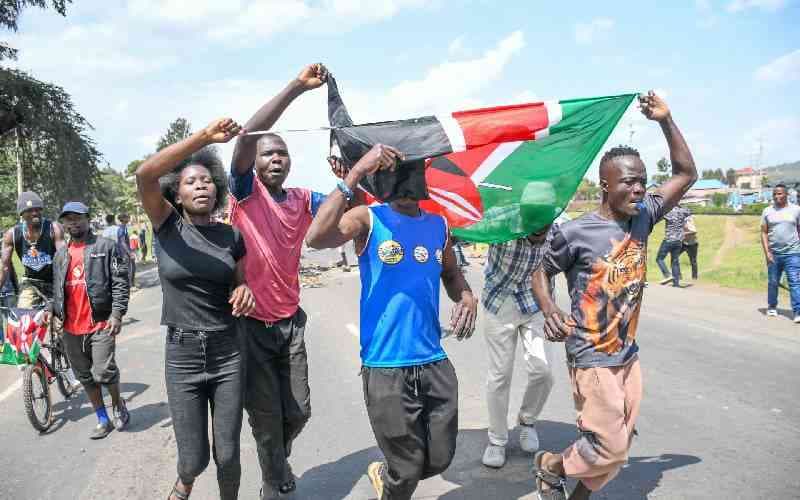We're loading the full news article for you. This includes the article content, images, author information, and related articles.
The move, which has been condemned by human rights groups as a "forced holiday" designed to stifle dissent, has prevented both protesters and essential workers from entering the capital.

Nairobi, Kenya — On July 7, a ring of steel encircled Nairobi’s city center as the government imposed an extraordinary lockdown in anticipation of Saba Saba Day protests — turning the bustling capital into a ghost town. By dawn, the city’s major entry points had been barricaded with armored vehicles, coils of razor wire, and a dense presence of heavily armed police. The Central Business District (CBD) was, for all intents and purposes, sealed off.
The lockdown brought Nairobi to a standstill. Not only were protesters blocked from entering the city, but so too were essential workers — including emergency responders and even government officials. Ambulances were stalled in gridlock or turned away at checkpoints, and ordinary citizens trying to reach work or medical appointments found themselves stranded.
“It felt like a city under siege,” one witness said, describing the eerie quiet that replaced the usual morning bustle. “Even during curfews, it’s never been this tense.”
The government’s move has sparked fierce backlash. Human rights groups and civil society organizations have condemned the lockdown as an unconstitutional show of force — a sweeping attempt to suppress freedom of assembly by shutting down the capital itself. Many are calling it a “forced holiday,” orchestrated not for public safety, but to silence dissent.
Critics argue that the state’s zero-tolerance approach to protest has not only undermined public trust but also intensified the anger driving Kenya’s youth-led movement. Rather than quelling unrest, the government’s response appears to be widening the chasm between authority and the people.
As Nairobi recovers from a day of paralysis, the deeper question looms: is the government’s clampdown a sign of strength — or a symptom of its growing fear of the very citizens it was elected to serve?
Keep the conversation in one place—threads here stay linked to the story and in the forums.
Sign in to start a discussion
Start a conversation about this story and keep it linked here.
Other hot threads
E-sports and Gaming Community in Kenya
Active 9 months ago
The Role of Technology in Modern Agriculture (AgriTech)
Active 9 months ago
Popular Recreational Activities Across Counties
Active 9 months ago
Investing in Youth Sports Development Programs
Active 9 months ago